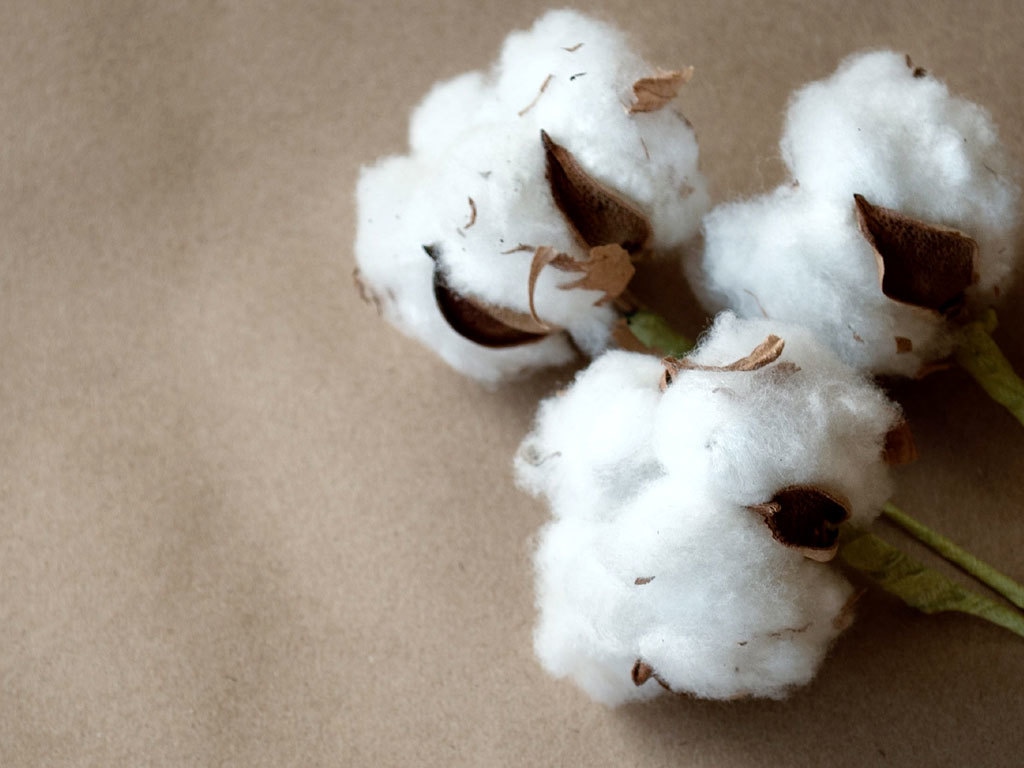KARACHI: The local cotton market remained stable on Tuesday. Market sources told that trading volume was satisfactory.
Cotton Analyst Naseem Usman told that textile exports during 1HFY21 increased by 7.8 percent year on year against a growth of 5 percent in total exports during the period. The sector’s share in total exports stood at 61 percent for 1HFY21, which is not different from sector’s weight in exports over at least the last year or so. Much of the growth in textile exports is attributable to the growth seen in the last four months. December 2020, - the latest month – saw the highest ever monthly exports at $1.4 billion, a growth of almost 23 percent year-on-year. The upward trend can also be seen from the total textile group exports rising by over 9 percent month-on-month in December 2020.
While the continued and massive decline in the output of cotton crop is posing serious threat to the country’s textile exports.
Addressing a press conference at Karachi Press Club, Dr Jassu Mal, Chairman, Pakistan Cotton Ginners Association (PCGA) said that Pakistan was the fourth largest producer of cotton in the world however cotton production in the country has declined to a lowest level due to inconsistent policies.
“The cotton cultivation area has witnessed over 33 percent decline during the last few years and the cotton crop has come down to its lowest level in the last three decades, reaching 0.5 million bales from 1.5 million cotton bales,” he added.
He also informed that currently over 60 percent of ginning industry is completely closed due to lower cotton production in the country.
He said that the massive decline in production is a complete failure of government policies and lake of concentration to the cotton crop. “If the government does not take serious steps for increase in cotton crop, Pakistan will be completely deprived of cotton cultivation and accordingly textile exports,” he warned.
He demanded the federal and provincial governments to take serious notice of the worrisome situation in agriculture sector. “The government should formulate a special policy to modernize the cotton industry,” he suggested. The decline in cotton crop has not only affected cotton growers but also cotton ginners, spinning weaving industries, textile and export sectors. Chairman PCGA urged the federal and provincial government to take serious on the massive decline in the cotton crop to save the country’s textile industry.
“The government should set up a Cotton Control Board on an emergency basis and set a target of 20 million cotton bales. Cotton crop zoning must be implemented in its true spirit,” he suggested.
Jassu Mal said that the government should also announce the cotton support price before the start of the cotton season to encourage the growers for cultivation of cotton crop.
In addition, new verities of cotton should be introduced to get more crop yield. PCGA chairman also urged for facilities like textile sector and concessional power tariff for ginning factories. He said that due to the low level of cotton production, a total some 8 billion would be imported to meet the domestic industry demand and it will cost 3 billion dollar foreign exchange. India, Bangladesh, Brazil, Sudan and other countries have surpassed Pakistan by supporting and modernizing their cotton industry, while Pakistan is still relying on old technology, he maintained.
Meanwhile, Prime Minister Imran Khan has assured to withdraw five percent custom duty on yarn import and in this connection notification will be issued immediately after the approval of Economic Coordination Committee (ECC).
He had a meeting with the elected office bearers of the Chambers of Commerce & Industry belonging to Punjab province.
President Faisalabad Chamber of Commerce & Industry (FCCI) Engineer Hafiz Ihtasham Javed representing the textile sector expressed his views about “Inspector less regime” for industrial sector and said that drastic cut in cotton production has not only created shortage of yarn but also enhanced its rates. He said that despite the corona, the Government took bold and prudent measures which helped the textile sector to improve its performance and enhance exports for the last three consecutive months.
Nseem Usman told that cotton production decline by 34.15 % according to the report released by Pakistan Cotton Ginners Association on January 15.
Naseem Usman told that 800 bales of Saleh Pat were sold at Rs 9800 to Rs 10,600 per maund, 2400 bales of Ghotki were sold at Rs 10,485 to Rs 10,600, 1100 bales of Ubaro were sold at Rs 10,750, 600 bales of Khandairo were sold at Rs 10,200, 1000 bales of Haroonabad were sold at Rs 11,500 (Condition), 3000 bales of Hasil Pur, 2400 bales of Rahim Yar Khan, 2000 bales of Sadiqabad, 1000 bales of Jalal Pur, 1000 bales of Khan Pur were sold at Rs 11,000, 200 bales of Kichi Wala were sold at Rs 10,800, 800 bales of Yazman Mandi were sold at Rs 10,500 to Rs 10,700, 400 bales of Bahawal Pur were sold at Rs 10,700, 1000 bales of Kot Sabzal were sold at Rs 10, 575 and 600 bales of Mian Channu were sold at Rs 9900.
Naseem also told that rate of cotton in Sindh was in between Rs 10,000 to Rs 10,700 per maund. The rate of cotton in Punjab is in between Rs 10,200 to Rs 11000 per maund. He also told that Phutti of Sindh was sold in between Rs 3800 to Rs 5000 per 40 kg. The rate of Phutti in Punjab is in between Rs 4000 to Rs 5500 per 40 Kg.
The rate of Banola in Sindh was in between Rs 1600 to Rs 2000 while the price of Banola in Punjab was in between Rs 1800 to Rs 2250. The rate of cotton in Balochistan is Rs 10,000 per maund.
The Spot Rate remained unchanged at Rs 10,700 per maund. The price of Polyester Fiber was increased by Rs 3 Kg and was available at Rs 191 per Kg.
Copyright Business Recorder, 2021























Comments
Comments are closed.